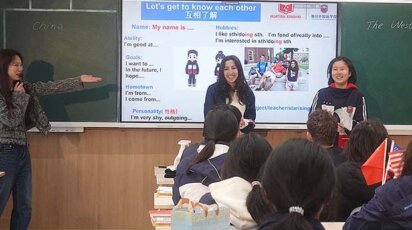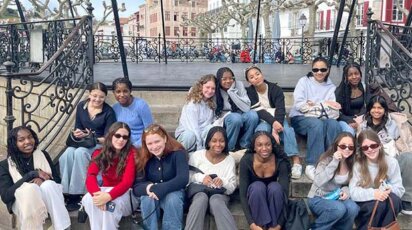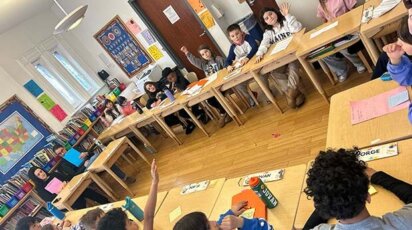News
Holocaust Survivor Is Guest Speaker at Assembly
Remembering the Holocaust and Its Lessons for Today
“Through remembrance, our eyes will be focused on the future. Through education, we strive to prevent future Holocausts.”
This was part of the message shared by Dr. Micha Tomkiewicz, our guest speaker at Upper School’s Holocaust Remembrance Assembly on April 25.
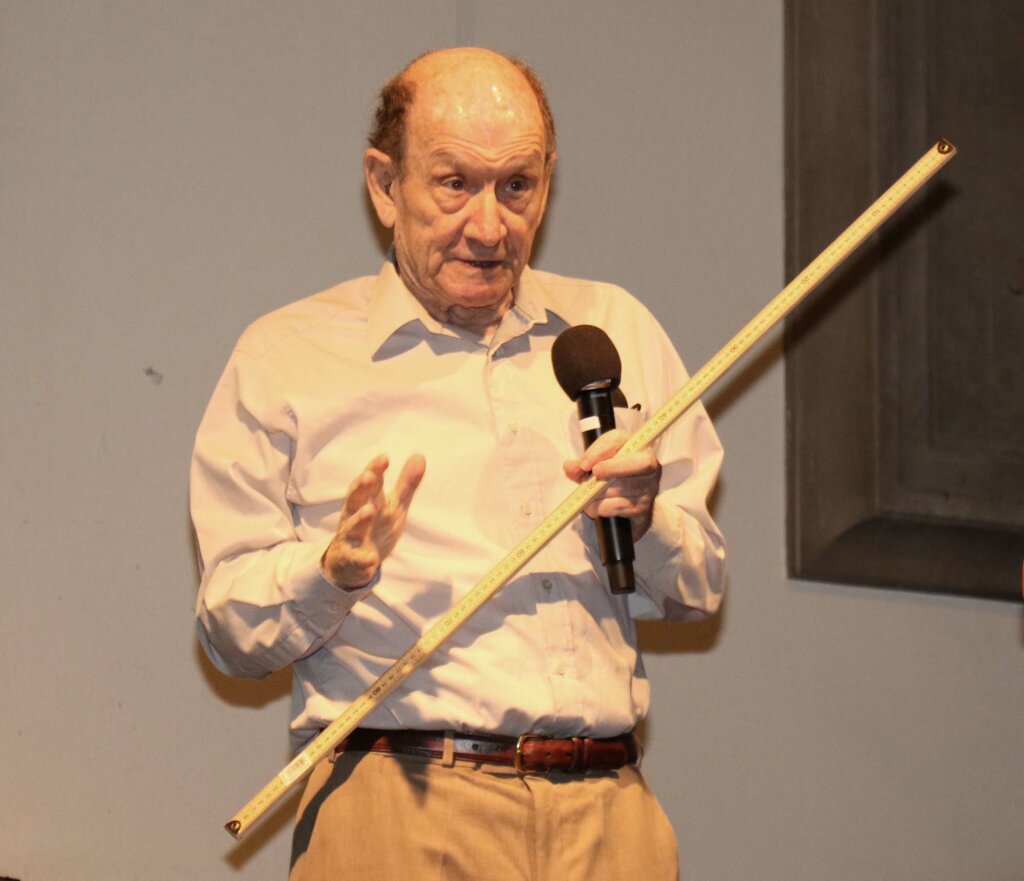
Julia’Belle Reyfman ’23 introduced Dr. Tomkiewicz, saying it was a great honor and pleasure to have him at Poly. She explained that he had been born in 1939 in Warsaw and that, as a small child, he was taken to Bergen-Belsen concentration camp and was rescued from a Bergen-Belsen Death Train by American troops in 1945, when Dr. Tomkiewicz was six years old. Reyfman noted that Dr. Tomkiewicz, professor of physics at Brooklyn College, is also an expert on climate change.
Dr. Tomkiewicz began his presentation saying, “We are living in a very demanding time” with Russia invading Ukraine and the “genocide there,” COVID, and Climate Change. Throughout his talk, Dr. Tomkiewicz said that Climate Change could be a “self-inflicted genocide” that current generations may have to answer for 40 or 50 years from now.
He explained that UN General Assembly resolution 60/7 had marked January 27, the day that the largest Nazi concentration camp, Auschwitz-Birkenau, was liberated, as an international memorial day commemorating all victims of the Holocaust. He said that it also commemorated the genocide “that resulted in the death of an estimated 6 million Jewish people, 2 million Romani people, 250,000 mentally and physically disabled people, and 9,000 homosexual men.”
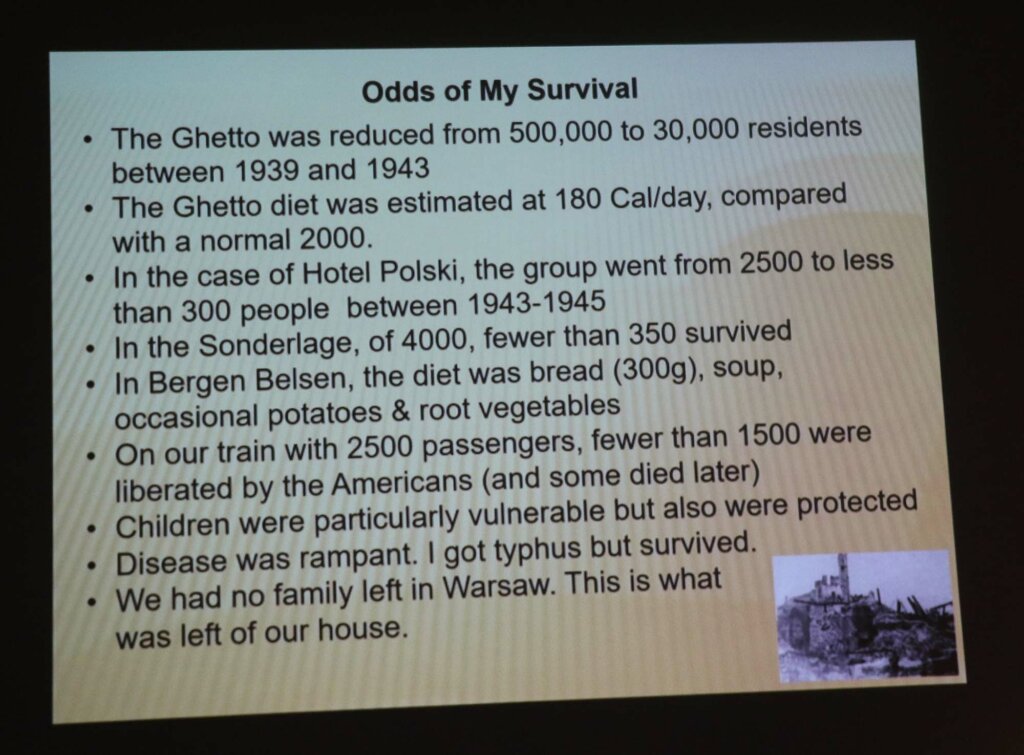
Dr. Tomkiewicz warned that while books were burned by the Nazis back in 1933, in 2022, a school board in Tennessee banned the teaching of the Holocaust novel Maus.
How was it that Dr. Tomkiewicz was able to survive the Holocaust while millions died? The Warsaw Ghetto was reduced from 500,000 to 30,000 residents between 1939, the year he was born, and 1943. Ninety percent of Jews in Poland—3 million people—were murdered. Both of his parents were lawyers and his father, Miecyslaw Tomkiewicz, was shot dead trying to escape a train going to Treblinka after the Warsaw Ghetto uprising. In the Warsaw Ghetto, as a child, Dr. Tomkiewicz was “hidden” and his mother was able to bring him bread. Later, in Bergen-Belsen, children were very vulnerable, but they were also very protected, he said, because they were seen as the future. While in the camp, Dr. Tomkiewicz came down with typhus, the same disease that killed Anne Frank.
On the Death Train from the camp, there were 2,500 people, but only 1,500 were left to be liberated. Dr. Tomkiewicz shared a photograph he discovered many years later of himself as a six-year-old boy with others who were rescued by the 30th Division of the 743rd Tank Division, U.S. Army on April 13, 1945. “I was that guy,” he said pointing at the small child circled in red.
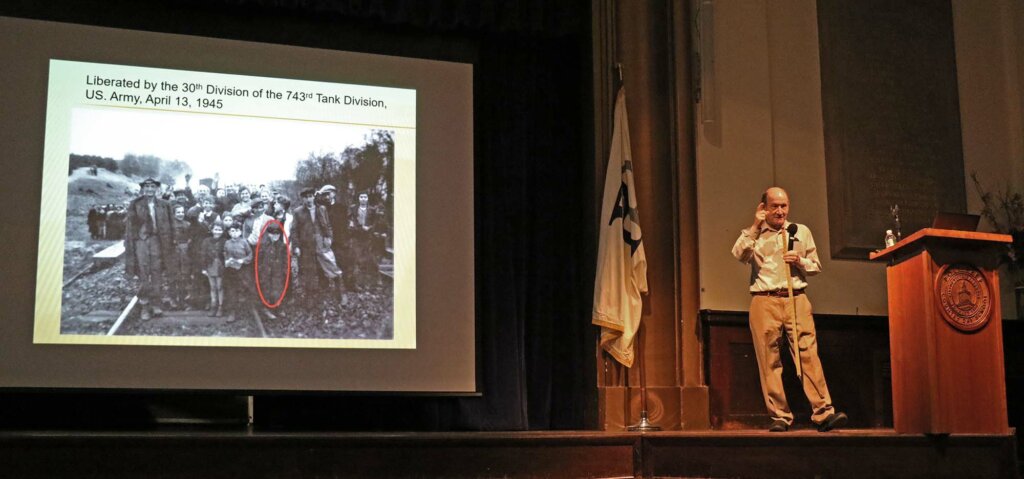
After the war, Dr. Tomkiewicz went to live in Palestine, where he went to school, served in the army, and ultimately earned his PhD. His mother, Mina Tomkiewicz, wrote two books about the Holocaust: Of Bombs and Mice and There Was Life Even There.
For 40 years, Dr. Tomkiewicz has taught at Brooklyn College. He shared with his audience, as he does in other speaking engagements, concern and warning about the “threat to humanity” that Climate Change is. “We have a tendency as humans to blame other people for miseries,” he said, but “80 years from now” future generations will “blame you” for not doing something about it. He said it is important to “make the connection between old and new” and warned that Climate Change can be a “self-inflicted genocide.” And he added, “Your grandchildren will face that reality.”


